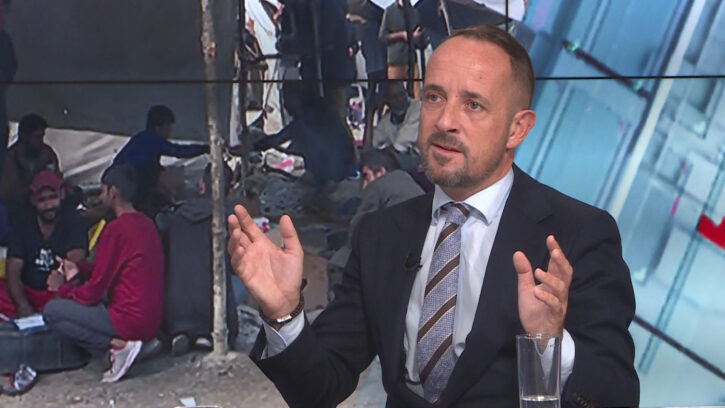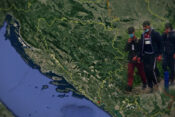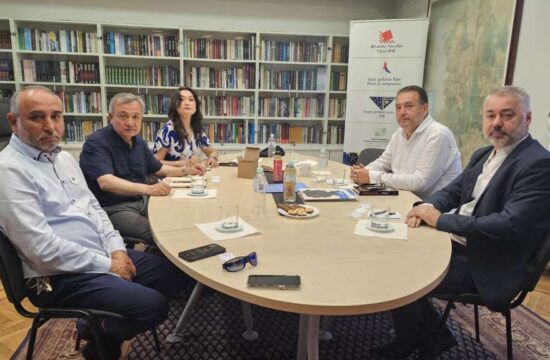
The migrants arriving in Bosnia and Herzegovina are currently mostly being accommodated in two cantons but the issue should be approached as something that affects the whole country, the Head of the International Organisation for Migration (IOM) in Bosnia, Peter Van der Auweraert, told N1 on Monday after Bosnian Serb leader Milorad Dodik declared the Serb-majority region of the country will not accommodate any migrants.
“Currently, accommodation capacity is mostly located in two Cantons, Sarajevo and Una Sana. The latter attracts a large number of migrants due to its geographic location, being close to Slovenia, the first Schengen country that migrants can reach from Bosnia and Herzegovina,” the IOM official said.
“IOM supports calls to approach the migration situation as an issue that affects the country as a whole, and not just a few cantons. This is how other countries such as for example Serbia, have addressed similar situations and Bosnia and Herzegovina could easily adopt a similar approach in this regard,” he added.
Dodik, the Bosnian Serb member of the tripartite Presidency, argued on Monday that Bosnia should deport migrants to their country of origin as soon as their identities are confirmed.
“We demand the full sterilisation from migrants on our territories and securing full safety for our people,” Dodik told the reporters, adding that Republika Srpska (RS), Bosnia's Serb-majority region, will not allow any migrant centres to be set up on its territory.
“It is unacceptable that some western institutions send demands more and more often to have the migrant issue distributed across Bosnia and Herzegovina. We reject that and won't take part in it,” he stressed.
Van der Auweraert explained that Bosnia and Herzegovina is mostly experiencing transit migration – the migrants use the country mostly only to travel to different parts of the European Union.
“The main challenge for the country is how to ensure that, on the one hand, those migrants that are transiting through its territory have access to humanitarian assistance and the protection of their basic human rights in accordance with national and international laws and, on the other hand, that the small number of those seeking international protection in Bosnia and Herzegovina as refugees have access to an effective and efficient asylum process in accordance with international refugee law,” he said.
Van der Auweraert stressed that the question of where migrants should be accommodated during their stay in Bosnia is up to the Council of Ministers, which has the exclusive competence regarding this issue.
“IOM’s role is to support the establishment and management of such accommodation together with its partners, in the locations decided by the authorities,” he said.
The IOM official explained that “border closures are rarely entirely successful in practice” and must be implemented “with respect for the right to access asylum.”
“The past two years have seen an increased effort on behalf of the Bosnia's border police, but migrants have continued to arrive, mainly from Serbia and, to a lesser degree, from Montenegro,” he said.
He also pointed out that “deportation of migrants is rarely as straightforward as it seems.”
“Firstly, it can only be done in accordance with national and international law, in particular international refugee law. In essence, all migrants who wish to apply for international protection in BiH should have their asylum claims reviewed and decided upon, and only upon a final negative decision they can be returned back to their country of origin,” he said.
“In addition, Bosnia and Herzegovina also needs to respect what in the international human rights conventions that the country signed up to is called the “principle of non-refoulement”. This means even those individuals who did not qualify for refugee status cannot be returned to their country of origin if they would be in danger there,” he added.
But even if these conditions are fulfilled, “forced return is not always easy in practice, especially in instances where the migrants have no IDs, as a first step in return is to ascertain the nationality of the person in question,” he said.
Van der Auweraert also pointed out that the IOM provides “voluntary return support” and assists those migrants who want to return to their country of origin with them getting the necessary travel documents and return plane tickets.
He also said that the IOM returned over 415 migrants within 12 months before the coronavirus pandemic and that the organisation continues to ensure that all migrants present in the country are aware of this option.





